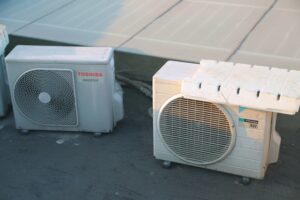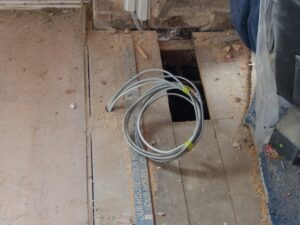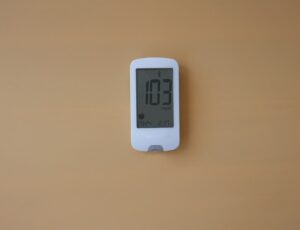Understanding the differences between a water softener and a water filter is essential for anyone seeking to improve their home’s water quality. A water softener is designed to remove hard minerals like calcium and magnesium, while a water filter targets contaminants such as chlorine, lead, and sediment from drinking water. Each system serves distinct purposes and addresses specific water issues you might face.
If you’re dealing with hard water that leads to scale buildup and dry skin, a water softener can be your solution. On the other hand, if your concerns revolve around the purity of your drinking water, investing in a water filter would be beneficial. Excel Mechanical specializes in both HVAC and plumbing services, providing tailored solutions to meet your unique needs and budget.
Understanding Water Softeners
Water softeners effectively address issues caused by hard water, primarily removing minerals that contribute to scale buildup. By utilizing an ion exchange process, these systems improve water quality, leading to various benefits for your home and plumbing.
How Water Softeners Work
Water softeners operate primarily through an ion exchange process. They contain resin beads coated with sodium ions. When hard water flows through the system, calcium and magnesium ions, which cause hardness, attach to the resin beads. In exchange, sodium ions are released into the water. This process results in softened water, effectively reducing mineral buildup.
The ion exchange process is crucial in preventing scale buildup in pipes and appliances. Without a water softener, these hard water minerals can accumulate over time, leading to costly repairs.
Benefits of Using Water Softeners
Using a water softener offers numerous benefits. First, it significantly reduces scale buildup in pipes, which can lead to clogs and decreased water flow. This reduction helps maintain the efficiency of your plumbing system.
Additionally, softened water can enhance the effectiveness of soaps and detergents. It requires less product to achieve the same results, saving you money on cleaning supplies. Furthermore, using soft water contributes to softer skin and hair, as it eliminates harsh minerals.
Choosing a reliable water softener can improve the longevity of your appliances. It helps reduce the wear and tear caused by hard water, ultimately leading to less frequent replacements.
Maintenance of Water Softeners
To ensure optimal performance, regular maintenance of your water softener is essential. This process typically involves checking the salt levels in the brine tank and replenishing them as needed. The salt helps facilitate the ion exchange process.
You should also periodically clean the resin beads to remove any accumulated hardness minerals. This task can often be done with a specialized cleaning solution. Regular maintenance not only prolongs the life of your unit but also ensures that you continue to enjoy the benefits of soft water.
If you need help with installation or maintenance, consider Excel Mechanical for HVAC and plumbing services. We offer exceptional quality and value tailored to your specific needs and budget.
Exploring Water Filters
Understanding water filters is essential for ensuring the quality of your drinking water. Different types of filters serve varied purposes, and knowing how to maintain them is crucial for optimal performance.
Types of Water Filters
There are several categories of water filters designed to target specific contaminants. Here are some common types:
- Activated Carbon Filters: These filters effectively remove chlorine, sediment, and volatile organic compounds (VOCs) through adsorption, improving taste and odor.
- Reverse Osmosis Filters: This system uses a semi-permeable membrane to remove a wide range of contaminants, including heavy metals, fluoride, and pesticides, providing highly purified water.
- UV Filters: Ultraviolet light systems disinfect water by inactivating bacteria and viruses, ensuring safe drinking conditions.
- Sediment Filters: These filters capture larger particulates such as dirt and rust, prolonging the life of other filtration systems.
Each filter type serves a distinct function in improving your water quality.
Functionality of Water Filters
Water filters function by targeting and removing impurities from your drinking water. The primary contaminants include:
- Chlorine: Commonly used in municipal systems, it can affect taste and smell. Activated carbon filters excel at removing it.
- Lead and Heavy Metals: Reverse osmosis systems are particularly effective against these health hazards.
- Bacteria and Viruses: UV filtration systems inactivate harmful microorganisms, making the water safe to consume.
Filters can also address pesticides, fluoride, and other chemicals. The right filter depends on your specific water quality needs.
Water Filter Maintenance
Proper maintenance is essential for ensuring the longevity and efficiency of water filters. Here are key points to consider:
- Regular Replacement: Most filters require replacement every 6 to 12 months. Check manufacturer guidelines for specifics.
- Cleaning Systems: Some filters, like carbon filters, may require periodic cleaning to maintain effectiveness.
- Monitoring Water Quality: Routinely test your water for contaminants to determine if your filter is still effective.
At Excel Mechanical, we emphasize the importance of regular maintenance to maximize the lifespan of your water filtration system. As a leading provider of HVAC and plumbing services, we aim to deliver exceptional quality and value tailored to your needs.
Comparing Softeners and Filters
When considering water treatment options, understanding the distinctions and applications of water softeners and filters is crucial. Both play unique roles in improving water quality, but they serve different purposes based on your specific needs.
Differences in Function
Water softeners and water filters perform distinct functions. A water softener specifically targets hardness-causing minerals such as calcium and magnesium. By removing these minerals, it helps prevent mineral buildup that can clog pipes and reduce the efficiency of appliances. This results in softer water that feels better on your skin and can improve the taste of your water.
In contrast, a water filter is designed to remove a broader range of contaminants. This includes sediments, chlorine, bacteria, and heavy metals from your drinking water. Filters enhance safety and improve the overall quality, ensuring that the water you consume is clean and healthy.
Choosing Between Softeners and Filters
When deciding whether to install a water softener or a filter, consider your primary concerns. If you are struggling with water hardness, a water softener is essential to eliminate those specific minerals. This is particularly important for maintaining your plumbing and appliances.
If your concern is related to impurities and contaminants that could affect health and safety, a water filter is the better choice. Many people benefit from having both systems, as they address different issues effectively. Evaluating the quality of your water supply will guide you in making the right choice.
Combining Softeners and Filters
Combining a water softener and a water filter can offer comprehensive water management. While a softener addresses issues related to hardness and protects your plumbing, a filter ensures the drinking water is safe and free from harmful substances.
Having both systems allows for maximum benefits. For instance, softened water can enhance the longevity of filter media, as less mineral buildup means more effective filtration. As you consider options, partnering with a trusted provider like Excel Mechanical can ensure you select the most effective systems for your home or business. Our commitment to exceptional quality and value means you can confidently meet your specific water treatment needs.
Installation and Maintenance
Understanding the installation and maintenance needs of water softeners and water filters is essential for optimal performance. Proper setup and ongoing care can ensure your systems work efficiently, ultimately extending their lifespan. The following subsections discuss installation methods and routine maintenance practices.
Professional Installation
When considering a water treatment system, professional installation is a wise choice. Experts can assess your home’s plumbing and help you select the right system. They ensure that the installation process adheres to local codes and regulations. A skilled technician will minimize the risk of leaks and malfunction, which can lead to costly repairs.
Professional installation typically includes a thorough evaluation of your water quality and pressure. This helps determine the necessary adjustments for optimal functionality. Trusting experts, like those at Excel Mechanical, can save you time and stress, allowing you to enjoy your water system fully.
DIY Installation Tips
If you prefer a DIY approach, careful planning and execution are crucial. Begin by reviewing the manufacturer’s installation manual thoroughly. Gather all necessary tools, such as wrenches, pipe cutters, and fittings. Ensure you have the correct sizing and type of plumbing hardware for your system.
Start by shutting off your water supply. Follow each step of the guide to avoid issues. Pay special attention to the connections between the unit and the plumbing. Tighten fittings securely, and check for leaks after installation. Additionally, remember to flush your system according to the manufacturer’s instructions.
Routine Maintenance
Routine maintenance is vital to prolong the lifespan of both water softeners and water filters. For water softeners, regular salt refills and cleaning of the resin tank are essential. Check the salt level monthly and add more as needed.
For water filters, timely filter replacement helps maintain water quality. Most filters require replacement every 6 to 12 months, depending on usage and water quality. Monitor your system for any decreased flow rates, which can indicate a clogged filter.
Performing routine checks on your plumbing can also prevent unforeseen issues. Clean any debris around the inlet and outlet lines to avoid blockages. Following these maintenance practices will ensure your systems remain effective over time.
Health and Environmental Considerations
When considering water treatment, it’s important to distinguish between water softeners and water filters.
Water filters are designed to improve drinking water quality by removing contaminants such as lead, arsenic, and chlorine. They enhance the taste and safety of your water, making it healthier for consumption.
Water softeners, on the other hand, focus on reducing hard minerals like calcium and magnesium. This process can alleviate issues caused by hard water, but does not address chemical contaminants and bacteria.
Here’s a breakdown of key contaminants that water filters typically target:
- Lead: Found in plumbing and harmful to health.
- Chemicals: Includes chloramines and trihalomethanes that may cause health concerns.
- Bacteria: Can lead to various illnesses if left untreated.
- Mercury and Nitrates: Common in certain environments, these can have serious health implications.
Using a water filter can greatly reduce these risks, providing healthier water for you and your family.
In contrast, a water softener can improve the quality of water for household tasks like laundry or dishwashing. This results in benefits such as improved taste and reduced scale buildup in pipes, leading to a more efficient plumbing system.
For both residential and commercial services, Excel Mechanical is your best choice. Our professionals ensure exceptional quality and value, tailoring solutions to meet your needs and budget. Get in touch to discuss your next steps.




